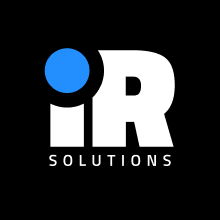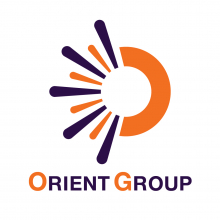
There are 17 Companies in Turkey
that provide Flutter Development Services!
While states, large companies, and universities discuss terms like the Fourth Industrial Revolution, 5G, the Internet of Things, artificial intelligence, and cybersecurity, consumers concern themselves with applications for their mobile devices, cloud technology, or developments in digital gaming. However, the origin of all of these is the sector of information technology (IT).
Discover Top IT Companies in Turkey specialized in Flutter and other related services. Find the best IT service providers for your projects.
Flutter is an open-source UI (User Interface) framework developed by Google for building natively compiled applications for mobile, web, and desktop from a single codebase.
It was officially introduced by Google in May 2017, although its development began earlier as an internal project named "Sky." It aimed to address challenges in cross-platform mobile app development by providing a consistent and high-performance framework for building native-like apps on iOS, Android, and other platforms. Flutter has since gained significant traction and popularity in the developer community.
Handpicked companies • No obligation to hire • 100% risk-free
Featured Companies in Turkey
This month, the following Flutter Development companies managed to provide an outstanding service and support. It's worth taking a look.
We are a team of developers, and product designers who are ultimate solution finders!
Momentup is a Istanbul based software development company, trusted by a wide and diverse spectrum of companies across industries.
Solvionica builds secure, scalable software solutions in crypto, fintech, and banking — from architecture to launch.
Explore Top Flutter Development Companies in Turkey
Mobirevo is a Leading custom software development agency focused on web, mobile app development & saas application development.
Suncode co is an IT solutions and consultancy company based in Erbil, providing high quality web development, designing and IT services.
Services:
We're a software and digital product design and development agency that combines the limitless creativity of art with the functionality of engineering
Services:
Transform Your Vision Into Reality with Onex Software - Driving Digital Transformation with Innovative Solutions.
Greyline Software Consulting delivers end-to-end web & mobile solutions, IT consulting, and custom software development.
“Penta Software blends design, software, and SEO with innovation and simplicity to deliver trustworthy and unique digital solutions.”
Services:
Machine manufacturers can connect and update their software running inside the machines (All brands PLC). They can see the errors online and fix them.
Ruber Media Web Design and SEO Agency
Services:
تعد مجموعة المشرق من الشركات الرائدة في مجال البرمجة والتسويق الإلكتروني
Services:
Filter Flutter Development Companies in Turkey by Cities
Find the right tech company near you or from a specific city. Some of the best companies might be located in smaller cities.
Find more Flutter Development companies around the world
TechBehemoths is the world's most advanced and user-friendly platform to match IT Companies with real clients without hustle.
The IT Industry In Turkey: Companies and Country Overview
While states, large companies, and universities discuss terms like the Fourth Industrial Revolution, 5G, the Internet of Things, artificial intelligence, and cybersecurity, consumers concern themselves with applications for their mobile devices, cloud technology, or developments in digital gaming. However, the origin of all of these is the information technology (IT) and software sector. The IT sector, which keeps states, companies, and individuals functioning, is a strategic –in the fullest sense of the word–arena.
Efforts towards digitalization are increasing every day throughout the world, creating new technology and solutions almost every day and shaping the future. Turkey has also rolled up its sleeves and gotten to work in this area. The information sector has become important in state policies, in companies’ business targets, and in education. The state aims to speed up its R&D efforts in software, in educational projects, and production by implementing various kinds of promotions and incentives.
Using local capital has increased the productivity of this sector, which provides added value far above the cost of expenditure for education and investment. Meanwhile, Turkey has also begun to lead in service exports.
While players in Turkey’s information sector cooperate with all other sectors in the country to increase digital transformation and productivity, the export rate is also increasing. The Turkish information sector, which supports Turkish mobile operators, bankers, and the defense industry -all of which are world leaders- has become a regional leader. This progress is demonstrated by the statistics and rankings.
Why Work With Turkish IT Companies
In the last two decades, Turkish IT companies managed to make a name for themselves, at least in the region, and also made the country a regional tech hub. One of the main reasons for the high performance of Turkish companies is the increasing professional workforce that empowers the entire IT ecosystem. In their turn, IT companies have specialized in creating, developing, and delivering professional digital services both for internal and external markets.
Between 2015-2019, the demand for Turkish digital services grew by 300%, which tells a lot about the preferences of clients that reoriented to a cheaper and still well-developed market. The demand is still in 2025 due to the growth of the Turkish economy and the government’s investment in the development of IT infrastructure.
What to Be Aware of When Working With Turkish IT Companies
Even though most of the services provided by Turkish digital agencies are professional, there is still a 3% chance that clients will meet an agency that lacks experience or has credibility issues. This problem finds its roots in the fast-development process of the entire sector.
Another potential issue you may encounter when working with Turkish IT companies is management. Again, it’s not a regular issue a client may meet, but it’s something that needs to be paid attention to.
How Reliable Are Turkish IT Companies
Together with a fast-developing IT industry, Turkish digital agencies and IT companies also improved their reputation and became one of the region’s most favorite partners in developing web solutions for the country’s public sector, private companies, and neighboring countries' entities.
The price per quality is considered one of the most reasonable on the international market, and there are no bureaucratic issues in contracting, working with, and ending agreements with Turkish companies. As it was mentioned previously, the government-supported facilities for IT companies create a good environment for the development of the IT industry.
What is Flutter and what are its benefits for your projects?
Flutter is an open-source UI (User Interface) framework developed by Google for building natively compiled applications for mobile, web, and desktop from a single codebase.
It was officially introduced by Google in May 2017, although its development began earlier as an internal project named "Sky." It aimed to address challenges in cross-platform mobile app development by providing a consistent and high-performance framework for building native-like apps on iOS, Android, and other platforms. Flutter has since gained significant traction and popularity in the developer community.
Flutter has seen rapid adoption, thanks to its key advantages, such as a single codebase for multiple platforms, a rich set of pre-designed widgets, and fast development cycles. It has found use in various industries, including mobile app development, web development, desktop applications, and even embedded systems. Some notable apps developed with Flutter include Alibaba, Google Ads, eBay Motors, and more. Its usage continues to grow, and it has a strong developer community and ecosystem.
Flutter is versatile and suitable for a wide range of projects:
- Mobile Apps: Flutter is commonly used for developing mobile applications, including consumer apps, business apps, e-commerce apps, social media platforms, and more. It provides a native-like experience on both Android and iOS.
- Web Apps: Flutter can be used to build web applications, allowing developers to target browsers as well. This is still in the experimental phase (as of my knowledge cutoff date), but it shows promise for building responsive web interfaces.
- Desktop Applications: Flutter supports desktop platforms like Windows, macOS, and Linux. Developers can create desktop applications for various purposes, including productivity tools and utilities.
- Embedded Systems: Flutter can be used to create user interfaces for embedded systems and IoT (Internet of Things) devices, providing a consistent look and feel across different hardware.
- Custom UI Components: Flutter is often used to build custom UI components and widgets that can be integrated into larger applications, providing a cohesive design language.
Hourly rates for Flutter developers can vary significantly based on factors like location, experience, project complexity, and demand. On average, Flutter developers may charge anywhere from $25 to $150 or more per hour. Rates tend to be higher in regions with a higher cost of living, such as North America and Western Europe, and lower in regions with lower living costs, such as Asia and Eastern Europe.
It's important to note that more experienced and specialized Flutter developers with a strong track record may charge higher rates. Additionally, some developers or development agencies may offer fixed-price contracts for specific Flutter projects, which can vary widely based on the project's scope and requirements.
When hiring Flutter developers, it's essential to consider factors like their expertise, portfolio, and the complexity of your project. Getting multiple quotes and conducting interviews can help you determine a reasonable rate and find the right developer or team for your specific needs.
We have also written an extensive research of what skills you should be looking for when hiring Flutter developers.
















